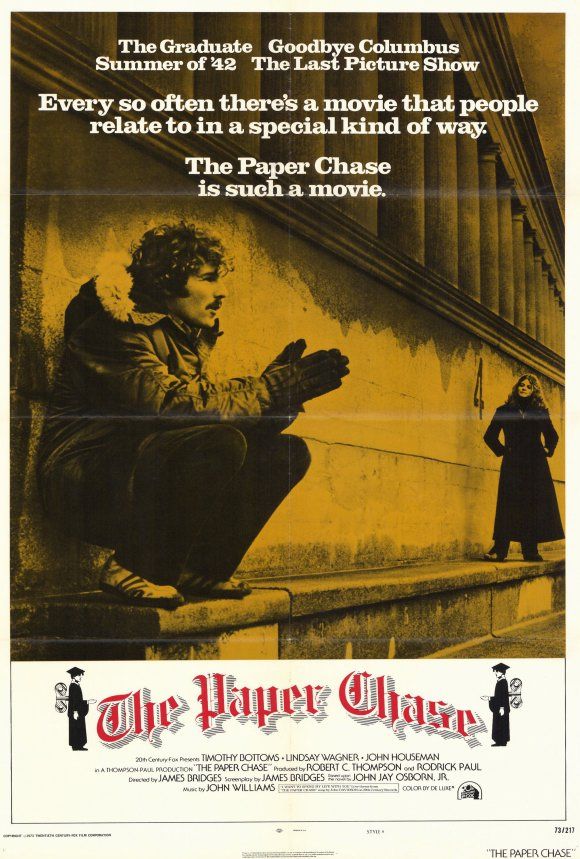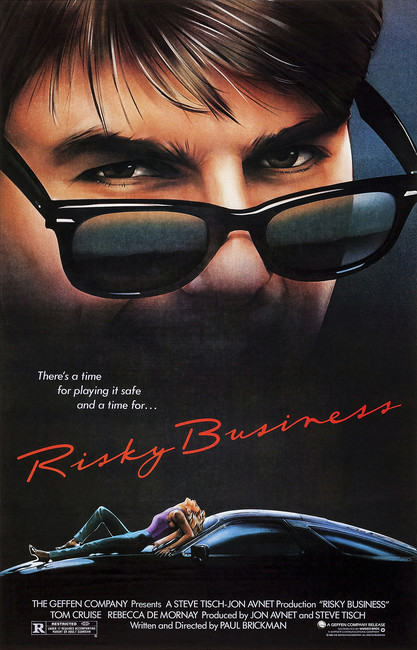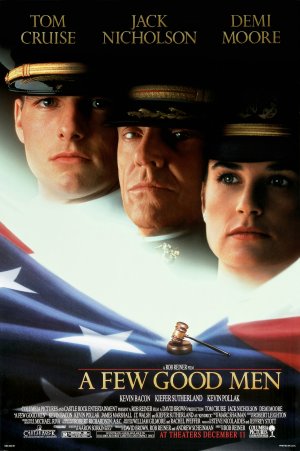Devine intervention: Massive overachiever ‘Rudy’ still sacking the skeptics
There are numerous capitals of American Dreamdom. The ones most often featured in cinema are Hollywood, New York City, maybe Nashville. Each overflows with promise to countless teens and 20somethings who want to give it a shot.
The college football landscape is a lot more humble. There are glamour spots like Columbus and Austin, but the other shrines include Tuscaloosa, Norman, Ann Arbor, Lincoln, Happy Valley ... Walk-ons show up all the time, hoping to say one day they made the team.
Some of them actually make it. There’s at least a little drama in the effort. But none of those stories would probably be a feature film.
Unless we’re talking South Bend.
“Rudy,” a 1993 hit, is typically labeled a sports movie or an underdog movie. Those terms undersell it as a college movie. Think about that for a moment. There really aren’t very many of them. “Good Will Hunting” (he spends very little time in actual college), “The Paper Chase,” “Animal House,” yeah, but most movies about students are set in high school. “Fast Times.” “Risky Business.” “Easy A.” “American Graffiti.” Why does cinema favor high school over college? Probably because high school students are much more reliable theatergoers than are college students, but also because high schools are far more diverse than colleges, high schools are spicy clique havens, bigger decisions are actually made in high schools than at colleges, and high school parents are available for key scenes, totally unlike college films.
Whether high school or college, films about students are typically chock-full of pranks or even raunch. “Rudy,” like “The Brady Bunch” and much unlike “Animal House,” shows us what a juggernaut innocence can be. Like many sympathetic movie characters, when Rudy does something as simple as putting on that Notre Dame jacket, it is like Clark Kent changing into his costume. And “Rudy” finds or invents drama in the littlest places. The scout team, the pep rally, the dress list, the conversations with the underachievers. Most filmmakers tackling this story would insist upon a romantic partner. “Rudy” impressively shuns that idea to sharpen Rudy’s singular focus. Like in “A Few Good Men,” it seems like an appealing romance is tantalizingly close (with a character played by Greta Lind, who would shortly after be married to screenwriter Angelo Pizzo; a librarian is played by the mother of the director, David Anspaugh), but when it ends up never happening, we don’t feel cheated.
Critics have every right to take aim at a couple of things about “Rudy.” One is that the depictions on screen simply aren’t factual (enough). The other is that making drastic changes in our lives based on our favorite sports teams is probably not, for most people, the best course of action.
Indeed, the content in “Rudy” is questionable. Everyone involved agrees that none of the Notre Dame players turned in their jerseys, that no one was chanting Rudy’s name. It seems that anyone who can’t help Rudy out doesn’t get much of his attention. Maybe the most dubious idea, repeatedly shown at practices and in heated locker-room conversations, is that Rudy was somehow outworking the scholarship players who all have far more natural talent. In real life, that included Joe Montana and others who became elite pros. Montana in interviews a while back said Ruettiger didn’t work “any harder than anybody else” and that the guys who carried Ruettiger off the field were “three of the biggest pranksters on the team.”
So we have to consider the film’s source. “Rudy” is the story of Daniel Ruettiger, who in 2011 was actually charged in an SEC complaint with running a “pump-and-dump scheme” involving a sports drink designed to compete with mighty Gatorade. Ruettiger in his post-Notre Dame career, outlined in Chicago Tribune articles, held a wide range of jobs before the movie, then became a motivational speaker after its release. In 2022, Ruettiger was giving a speech in Reno, to the Northern Nevada Italian Association Fundraiser. (Ruettiger, apparently, is German.) He said then of Montana, “I’m gonna let him have his interpretation, how he saw it and how he feels about it. And I love him to this day.” Is “Rudy” a bunch of bull? Well, there’s the famous Roger Ebert argument — Accuracy is no excuse for drama; effectiveness is.
The backstory noted in media reports is that Ruettiger failed to sell his story to Hollywood in the early 1980s, then the success of “Hoosiers” inspired him to make a renewed push. And he found takers in none other than David Anspaugh and Angelo Pizzo, the director-writer team of “Hoosiers.” A crucial endorsement came from the University of Notre Dame, which allowed Pizzo’s script to be the first movie shot on campus in decades. Given that most of the scenes take place in school hallways, janitors’ offices and steel mills, “Rudy” would’ve been doable on a Hollywood set, but the solemnity of South Bend gives the movie serious oomph.
One of the surprising pleasures of “Rudy” is how entertaining it is before it even gets to South Bend. True, none of these characters is going to be accused of Method Acting. But the right buttons are pushed again and again. There is Dad’s frown, there is a bar fight, there’s even a plant explosion which, like the one at the refinery in “Urban Cowboy,” will convince the hero he has to do something. When the whole world is skeptical of you, it’s kind of funny. Why do they all ... care so much about Rudy’s goal? Are they jealous? Or eager to put him down? Is it schadenfreude? Or is he wasting their time in ways we don’t see?
Somehow these misadventures carry the story along even better than the obvious late ’60s/early ’70s movie fixtures actually spurned by these filmmakers, Vietnam (even though Daniel Ruettiger, in a life chapter omitted from the film, spent two years in the Navy) and what could’ve been, but is in no way, a killer soundtrack. Instead, the movie poses a very interesting question: Suppose you showed up somewhere with just a bag of clothes and very little money and a dream. Where would you go, where would you sleep, where would you eat, shower, etc. It’s a lot of fun to think about. For nearly anyone with the wherewithal of Rudy, even with little money or a low-paying job, there is at least something to lose attempting this kind of adventure and the tradeoff isn’t worth it. For most people, in most such endeavors, there would have to be countless moments thinking “this is hell.”
“Rudy” ignores the boredom, lack of money and the mundane but important everyday concerns and convinces us instead that everything Rudy is doing is progress, and the excitement of his progress makes any setback overcomeable. And there is truth there. For one thing, the importance of geography. You can’t attend Notre Dame from Joliet. You have to get to South Bend. Once there, you might have no place to live. Or work. But you do have geography to your advantage. You can come to campus every day and attack this goal from numerous angles. Did Rudy seriously take a ride to South Bend and walk up to the campus gates pre-dawn and ask how to start attending school there? We’d have to think, no, but this movie convinces us he would’ve.
Smart people have many qualities that escape Rudy. Where he’s off the charts is in chutzpah. In most films, villains prevent heroes from achieving goals. In “Rudy,” the villains kind of are the goal, prove ’em wrong, win ’em over. Most people, including smart people, recoil at rejection. The movie beautifully illustrates Rudy’s fearlessness of these serious social pitfalls. He will burst past the secretary into Coach Parseghian’s office and vow to join the team. He will risk being caught sneaking around on campus. He has no trouble talking to girls even with ulterior motives. He is impervious to embarrassment, an admirable trait.
“Rudy” for a time takes on a curious buddy comedy approach. Struggling in community college, Rudy is noticed by a tutor who sees that Rudy is comfortable around girls and figures it would be a fair tradeoff, he will help Rudy get good grades in exchange for Rudy introducing him to pretty girls. Future Marvel director Jon Favreau, as the tutor D-Bob (a curious name), seems a little pathetic in some of these scenes. It seems the movie hits a low point when D-Bob believes a pretty girl wants to date him, only to realize it’s her less-attractive friend who wants to date him, only to have D-Bob and other girl hit it off and prove an attractive couple.
One of those awkward life moments — when someone promises us something that someone else actually has control over — plays out into the climax of “Rudy.” Ara Parseghian has made a good-faith pledge to Rudy that we know Ara will honor. But Ara retires before he can honor the pledge. We know, from Joe Montana’s account and perhaps others, that there was actually no controversy over Rudy dressing for a game, and that Dan Devine, who understood he would be depicted as somewhat of a villain, found his portrayal “unforgivable.” This is again life’s inaccuracy but cinematic truth. How many times have we found ourselves in this kind of situation, where someone in authority promised something, only to have another person in authority refuse to fulfill the promise, citing either a sound or questionable rationale. The typical protest is, “Well so and so said we could do it.” Rudy’s reaction is, after a couple years of this extraordinary odyssey, to finally quit on the spot. The way these situations are resolved in real life varies based on the clout of the promisee and clout of the promisor. The resolution in “Rudy” involves influential third parties taking up the cause of the promisee, inspired by his dedication.
The scenes at practice may make people question whether these Notre Dame players really are All-America candidates. Many may wonder, rightly, what a 5-foot-6 individual such as Daniel Ruettiger could possibly add to Irish practices, why it would help 250-pound tackles to block this man on sweeps; it would be like someone pitching 70 mph fastballs to big league hitters for batting practice and telling them they have to go all out to get better. However, the game action, filmed by NFL Films crews (Phil Tuckett is in the credits) while the stands are packed for actual Notre Dame games, looks exceptional. “Rudy” bears similarities to “Heaven Can Wait” in how the players appear downright incompetent at practice, but in a few “game” moments in front of an actual crowd, the actors and photography crew make it “real” enough. Names on the backs of jerseys in some cases match names in the credits; one player called “O’Hara” in the movie actually has “O’Hare” (like the airport) on his jersey.
The chanting may have been nonexistent in 1975, but the notion of it happening is plausible. And the chuckling by Devine after the sack and at the ending of the game is amusing. Despite Joe Montana’s indifference, Ruettiger’s exploits were noted in the last two paragraphs of the Notre Dame-Georgia Tech game story in the Chicago Tribune.
The Chicago Tribune account of the ending of the Nov. 8, 1975, Notre Dame-Georgia Tech game
Figures show Rudy made decent money at the box office. Most people never saw it at the theaters, but they more than caught up with it on cable, where it regularly provides supreme entertainment to this day, as sometimes happens (witness “Road House”).
One unintentional but powerful message from “Rudy” is that unlikely people sometimes end up in places you wouldn't expect them to be. This message is at odds with part of the movie’s emphasis, that Rudy “deserves” the outcome he receives because of the effort he put into it. In fact, Rudy proves that a lot of prizes go not to the most talented or most deserving, but to the people who simply want them the most. There are real-life limitations. A golfer with Rudy's talent would never play in the Masters. But an actor of Rudy's talent with enough chutzpah could easily end up in an Oscar-worthy film.
Finally, to Sean Astin. He is a superstar as Rudy Ruettiger, one of Hollywood’s greatest underdog portrayals. He was unfortunately apparently never seriously considered for the Oscar, which he rightfully could’ve received — Tom Hanks won for “Philadelphia,” and other nominees included Daniel Day-Lewis, Liam Neeson, Anthony Hopkins and Laurence Fishburne. Astin is flawless; the casting, maybe not so much. Astin is as much a legacy in his profession as the jaded upperclassman Rudy meets on the Irish scout team. Ideally, “Rudy” would star some 20-year-old kid who’s been hanging around the Paramount lot, sleeping in janitors offices, bugging security guards for years, vowing he’s going to be in a movie. Hollywood is just as cold and hard of a business as Dan Devine’s dress list.
4 stars
(July 2024)
“Rudy” (1993)
Starring
Sean Astin
as Daniel E. ‘Rudy’ Ruettiger
♦
Jon Favreau
as D-Bob
♦
Ned Beatty
as Daniel Ruettiger
♦
Greta Lind
as Mary
♦
Scott Benjaminson
as Frank Ruettiger
♦
Mary Ann Thebus
as Betty
♦
Charles S. Dutton
as Fortune
♦
Lili Taylor
as Sherry
♦
Christopher Reed
as Pete
♦
Deborah Wittenberg
as Young Sherry
♦
Christopher Erwin
as 7-Year-Old Mark
♦
Kevin Duda
as 9-Year-Old Bernie
♦
Robert Benirschke
as 11-Year-Old Mark
♦
Luke Massery
as 13-Year-Old Rudy
♦
Robert J. Steinmiller Jr.
as 13-Year-Old Pete
♦
Jake Armstrong
as 13-Year-Old Bernie
♦
John Duda
as 15-Year-Old Frank
♦
Joseph Sikora
as 17-Year-Old Johnny
♦
Gerry Becker
as Father Ted
♦
Bob Swan
as Father Zajak
♦
Robert Prosky
as Father Cavanaugh
♦
Leonard Kuberski
as Classroom Priest
♦
Father James Riehle
as Locker Room Priest
♦
Robert Mohler
as Johnny Ruettiger
♦
Todd Spicer
as Boy in Neighborhood
♦
Jason Miller
as Ara Parseghian
♦
Jean Plumhoff
as Fran
♦
Spyridon Stratigos
as Coach Gillespie
♦
John Beasley
as Coach Warren
♦
Ron Dean
as Coach Yonto
♦
Paul Bergan
as Coach
♦
Lorenzo Clemons
as High School Assistant Coach
♦
Sean Grennan
as High School Assistant Coach
♦
John Whitmer
as Football Trainer
♦
Scott A. Boyd
as Lineman
♦
William Bergan
as Lineman
♦
Kevin Thomas
as Player from Sidelines
♦
Tom Dennin
as Announcer
♦
Michael Sassone
as Guard
♦
Marie Anspaugh
as Librarian
♦
Chris Olson
as Dan Dorman
♦
Vincent Vaughn
as Jamie O’Hara
♦
Peter Rausch
as Steve
♦
Kevin White
as Roland
♦
Jennie Israel
as Rhonda
♦
Amy Pietz
as Melinda
♦
Mitch Rouse
as Jim
♦
Lauren Katz
as Elza
♦
Chelcie Ross
as Dan Devine
♦
Christine Failla
as Pretty Girl
♦
Donna Cihak as Pretty Girl
♦
Colleen Moore
as Pretty Girl
♦
Diana James
as Pick-up Girl
♦
Mindy Hester
as Pick-up Girl
♦
Casey Cooper
as Pick-up Girl
♦
Jenna Chevigny
as Pick-up Girl
♦
Beth Behrends
as Girl in Cafeteria
♦
Corelle Banjoman
as Walk-on
♦
Pablo Gonzales
as Groundskeeper
♦
Spencer Grady
as Maintenance Worker
♦
Kellie Malczynski
as Maintenance Worker
♦
Theodore Hesburgh
as Priest
♦
Edmund Joyce
as Priest
♦
Kent Hunsley
as Mill Worker
♦
Dennis McGowan
as Barkeeper
♦
Jennifer Patricia Phelps
as Friend
♦
Michael Scarsella
as Friend
♦
George Poorman
as Senior
♦
Robert Simmermon
as Professor
♦
Daniel ‘Rudy’ Ruettiger
as Fan in Stands
♦
Bob Zillmer
as Usher
♦
Scott Denny
as Rick
Directed by: David Anspaugh
Written by: Angelo Pizzo
Producer: Robert N. Fried
Producer: Cary Woods
Co-producer: Angelo Pizzo
Associate producer: Jeffrey I. Friedman
Associate producer: Alan J. Mintz
Associate producer: Richard J. Zinman
Executive producer: Lee R. Mayes
Music: Jerry Goldsmith
Cinematography: Oliver Wood
Editing: David Rosenbloom
Casting: Sharon Bialy, Debi Manwiller, Richard Pagano
Production design: Robb Wilson King
Set decoration: Martin Price
Costume design: Jane Anderson
Makeup and hair: Tammy Kusian, Anna Berry, Lun Yé Hodges, Elaine M. Cascio, Angela Nogaro, Robyn Goldman, Wendy Kimmel
Unit production manager: Billy Higgins
Stunts: Rick LeFevour, Jim Fierro, Brian Flemming, Stacy Logan,
Dan Maldonado, Linda Perlin, Ben Scott, Kent Shelton, Jeff Williams


